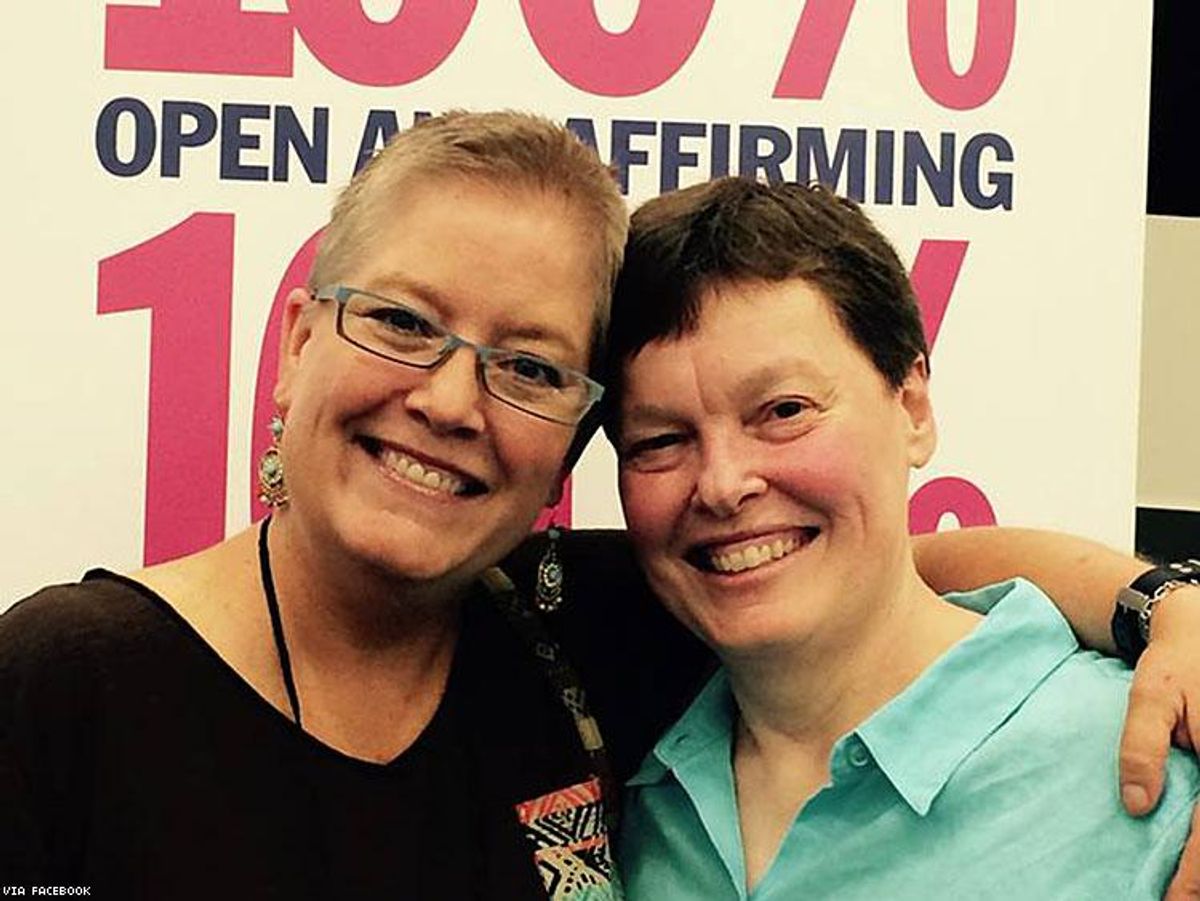Marriage Equality
Couples Challenge North Carolina's Antigay Marriage Law
Couples Challenge North Carolina's Antigay Marriage Law

Six couples demand the law allowing magistrates to opt-out of performing same-sex and other weddings be declared unconstitutional.
Dawn Ennis
The Advocate's news editor Dawn Ennis successfully transitioned from broadcast journalism to online media following another transition that made headlines; in 2013, she became the first trans staffer in any major TV network newsroom. As the first out transgender editor at The Advocate, the native New Yorker continues her 30-year media career, in which she has earned more than a dozen awards, including two Emmys. With the blessing of her three children, Dawn retains the most important job title she's ever held: Dad.
The Advocate's news editor Dawn Ennis successfully transitioned from broadcast journalism to online media following another transition that made headlines; in 2013, she became the first trans staffer in any major TV network newsroom. As the first out transgender editor at The Advocate, the native New Yorker continues her 30-year media career, in which she has earned more than a dozen awards, including two Emmys. With the blessing of her three children, Dawn retains the most important job title she's ever held: Dad.
December 09 2015 6:15 AM EST
October 31 2024 7:25 AM EST
Lifeafterdawn

















































































